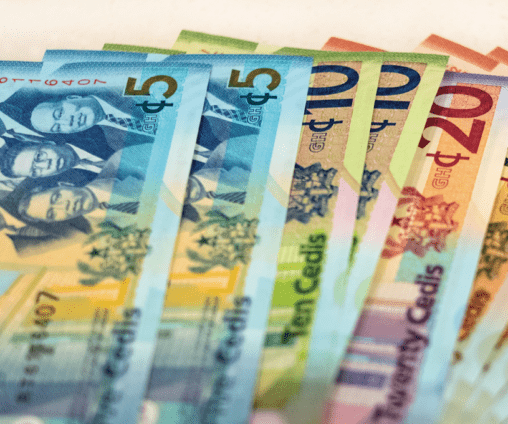Yuletide-induced and corporate demand for foreign exchange (FX) and limited support from the central bank will exert extra pressure on the cedi (GH¢).
This is according to a recent note by Databank Research, which expects that ahead of the festive season this cocktail of factors will sustain pressure on the local unit in the near-term.
“With the rising FX demand from local corporates and importers ahead of the festive season, we expect the Ghanaian cedi to weaken this week,” analysts at Databank Research wrote.
This comes in the wake of limited foreign exchange (FX) support from the Bank of Ghana (BoG) and growing corporate demand. The Ghana cedi (GH¢) witnessed a marginal depreciation during the week’s trading sessions, closing the period with a mid-rate GH¢11.84 being exchanged for US$1.
This represented a 0.17 percent week-on-week depreciation against its most significant trading counterpart.
The local unit’s woes were not limited to the greenback, as it lost ground against other major international currencies.
The cedi weakened by 0.86 percent against the British pound (GBP) and 0.60 percent against the euro (EUR) in the retail market.
In the interbank market, the cedi to US dollar (GH¢/US$) pair dropped by 0.73 percent on a weekly basis. On the other hand, the cedi to euro (GH¢/EUR) pair gained marginally by 0.06 percent, while the cedi to British pound (GH¢/GBP) pair remained stable.
This depreciation comes in the aftermath of a series of interventions by the apex bank. In the 38th auction conducted by the central bank, it received 20 bids from financial institutions; a significant increase compared to 15 bids in the previous week and an average of 12 bids over the course of this year. This rise in demand for foreign exchange indicates growing pressure on the nation’s currency.
The BoG’s auction offering of US$20million to the Bulk Distribution Companies (BDCs) and an additional US$2million for spot market interventions proved insufficient in satisfying the persistently high demand for foreign currency.
It remains to be seen how much relief the annual cocoa syndicated loan and second tranche of US$600million from the International Monetary Fund will give – particularly in the fourth quarter.
The former is expected to come in at 33.3 percent lower than the 2022 figure – down to US$800million from US$1.13 billion last year.
This, the central bank has suggested, is a debt sustainability measure included in the IMF programme aimed at restoring macroeconomic stability throughout the cocoa value chain.
Others, such as Bright Simons – Vice President of the policy think-tank IMANI-Africa – have argued that the reduction in amount of Ghana’s cocoa syndicated loan does not necessarily reflect prudence on COCOBOD’s part, but rather a decline in banking confidence. There has however been a steady decline from the 2020/201 season, with US$1.3billion and US$1.13billion last year.
Nonetheless, confidence in the IMF disbursing US$600million in November remains high as assurances from external creditors over debt restructuring – a condition for the disbursement – have been given.
Already, the Ministry of Finance has revealed that it is presently in discussions for debt relief with Eurobond creditors – having the goal of restructuring an outstanding US$13billion Eurobond debt.
Simultaneously, the nation continues in dialogue with bilateral creditors, including China and members of the Paris Club, in an attempt to restructure a combined debt of US$5.4billion.









